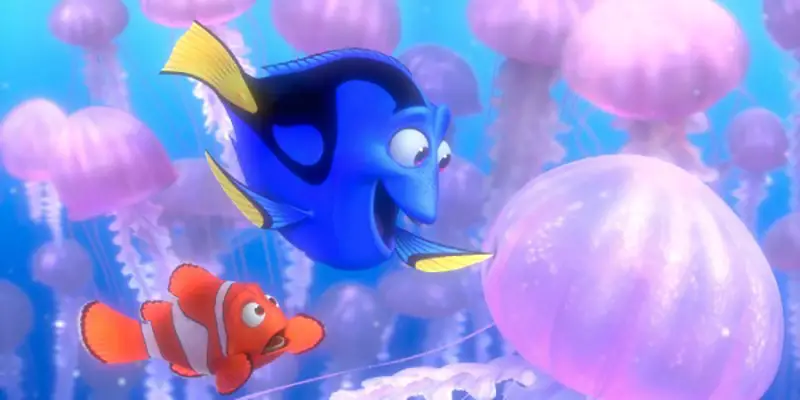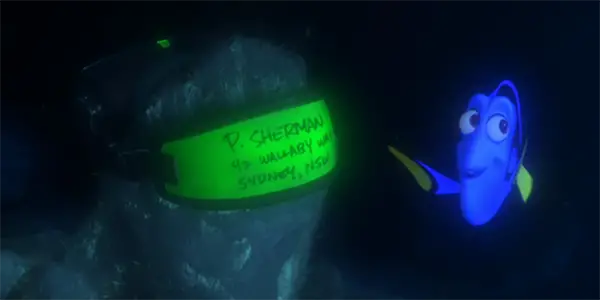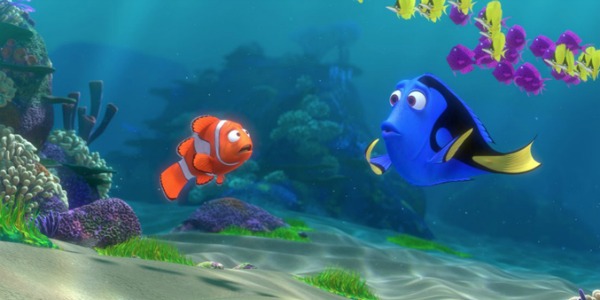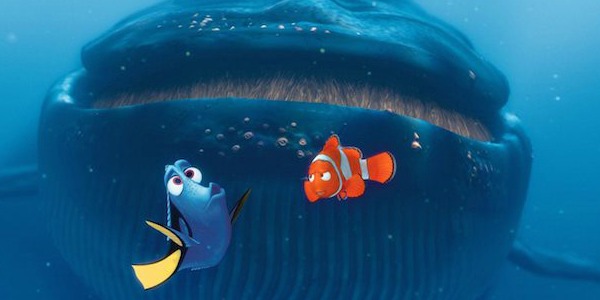Dory And Short-Term Memory Loss: Is Pixar Getting It Right?

Fresh out of grad school for clinical psych, you can…
Let me know if you’ve heard this one. A man wakes up after an accident with no memory of who he is or where he’s been, and while incredibly disabling, his predicament leads him down a lengthy search to discover his past and identity. This and other uses of memory loss have been popular in film for generations. It’s so captivating to watch the protagonist and their journey towards self-discovery, and we can’t help but root for them as they recover a lost piece of themselves. Yet, as exciting as this film trope is, full-blown amnesia is much less common in the real world.
Amnesia does not suddenly erase someone’s identity nor does it make them question who they are. It’s not as common as we are led to believe, and every individual who garnishes a head wound will not suddenly forget his or her entire past.
With Pixar’s second submarine film, Finding Dory, being released it provides an excellent opportunity to revisit the amnesiac blue tang fish Dory and her memory disorder, in an attempt to uncover how accurate Pixar is in portraying mental illness.
A shallow memory
Dory explains during both films that she has short-term memory loss. In psychology this is called anterograde amnesia or the loss of ability to create new memories. You see, memories typically transition from short-term storage to long-term storage in the process of encoding.
Yet, when someone has a deficit in their short-term storage, the memory will not properly encode and instead will quickly become forgotten. A memory in short-term storage typically keeps for only a couple minutes (depending on how much rehearsal is done). So if someone truly wishes to recall an important memory in the future, the transition from short-term to long-term must not be impeded.

In regards to Dory, her character’s actions and behaviors actually check out as far as modern research on amnesia goes. Dory’s inability to encode memories make it so that any new information will go in one ear and out the other. This explains why she has such a hard time recalling anything she just heard.
However, Dory was eventually able to remember the pinnacle Sydney address necessary in Finding Nemo. So the question arises: is there an explanation for this phenomenon or was Dory’s serendipitous recollection merely Pixar’s deus ex machina?
Now where did I put that?
This one is a little trickier, as what triggers memories can range from all sorts of things: smells, thoughts, sayings, et cetera. Yet it would seem that the common denominator in Dory’s recollection was the clown fish, Marlin. Something about his presence acted like a memory retrieval cue for Dory, and allowed her to successfully retrieve the important address.

When looking at memory, it’s best not to picture it like a library of info all lined up Dewey Decimal style, but instead more akin to millions of spider web strands reaching out and making more and more connections made up of the associations in our daily lives. Similar to your train of thought jumping several tracks from your initial starting point, memories too travel along a superhighway made up of these associative connections.
When we see Dory’s memory flashbacks during Finding Dory, they are always preceded by some related material (Dory hearing abut the undertow and then flashing back to her parents giving her a similar warning). This related information is a well documented process used by clinicians when treating amnesiac patients.
The technique is sometimes referred to as reality orientation, in which the individual is exposed to something special or important to them in order to best induce an associative memory (think of Noah reading the journal to his wife in The Notebook). The theory is that by exposing a patient to familiar items, you will have a better chance to tap into the associative spider web connections present in their memory.
I can speak Whale
There are some things that Dory is able to do regardless of her memory loss, such as speak, swim, and quip. This is because her procedural memory, the part that deals with everyday behaviors, is not affected by her disorder.
Similarly, one of the most famous amnesiac patients, a man by the name of Clive Wearing, was still able to perform concert level piano even after acquiring severe amnesia. Just like Dory, Wearing was not able to recall information he had heard just seconds before, yet he was able to play the piano at an expert level.

The complexity of memory isolation in the brain is incredibly difficult to pinpoint, which could explain why Dory’s ability to remember the directions was not affected the same way as her inability to remember names. This could also explain how Dory began to remember her parents in the second film, as the memories from her childhood could have been less affected by her disorder and just required the appropriate amount of reality orientation to access.
Just keep swimming
Upon revisiting the films I have decided that the Finding Nemo/Dory films do a wonderful job at illustrating not only the difficulties of memory loss but also the support and stigma associated with it. Even though the amnesia seemed to track throughout the films, my favorite parts would have to be Pixar’s illustration of the positive impact a disordered individual can have on those around them.
[easy-tweet tweet=”‘Pixar does a wonderful job at illustrating the difficulties of memory loss and its stigmatisation'” user=”FilmInquiry” usehashtags=”no” template=”light”]With chronic memory loss the films could have been very repetitive and annoying, as Dory constantly forgets things, yet the writers were able to balance the deficit with Dory’s positive and curious personality. Her impact on the other fish can be seen clearly as she helps Marlin develop a more carefree spirit or aids her whale friends in overcoming their fears.
Not only that, but the way others gravitate to Dory and seek to help her illustrates the power of social support in recovery. My ultimate takeaway from the films was a welcomed reminder that those with disorders should not be thought of as a burden, but instead seen for the positive impact they can have on those around them.
What is your favorite movie with memory loss in it?
Does content like this matter to you?
Become a Member and support film journalism. Unlock access to all of Film Inquiry`s great articles. Join a community of like-minded readers who are passionate about cinema - get access to our private members Network, give back to independent filmmakers, and more.
Fresh out of grad school for clinical psych, you can find Russell at any local market place next to the vendors that sell pairs of socks, as he nit-picks the psychology within movies. He enjoys long walks on the beach, candle light dinners, and systematically analyzing the first two in order to draw trivial correlations. But hey, who said science can't be sexy?













